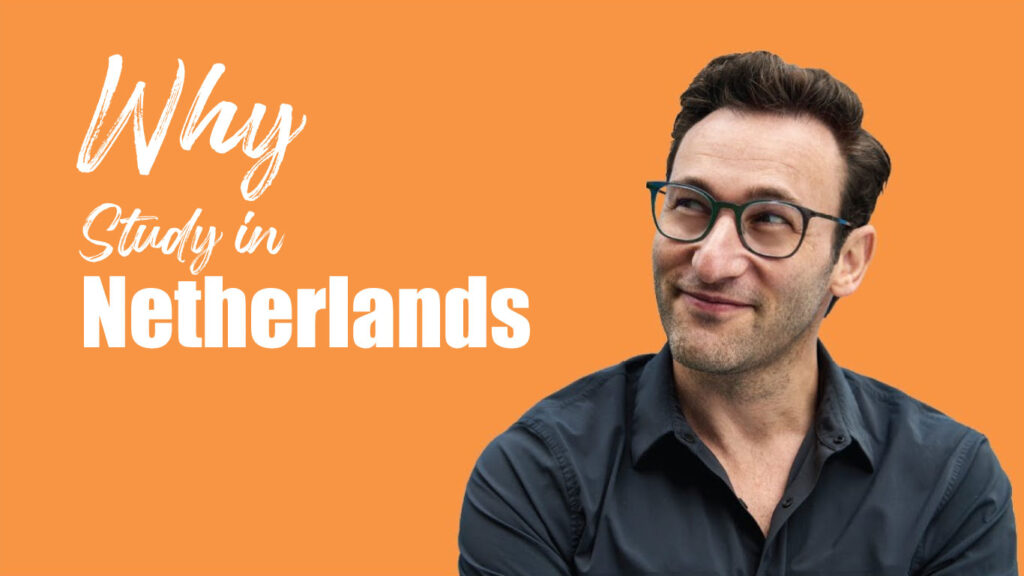Study in Netherlands
Study in Netherlands – The Netherlands is a popular destination for international students seeking high-quality education in a diverse and welcoming environment. With a wide range of academic programs offered in English, state-of-the-art facilities, and an emphasis on hands-on learning, studying in the Netherlands can be a transformative experience. Additionally, the country’s vibrant culture, beautiful landscapes, and bustling cities make it an ideal place to live and learn. In this guide, we will explore the ins and outs of studying in the Netherlands, including admission requirements, academic programs, student life, and more.
Why study in the Netherlands?

1. Affordable tuition fees
Dutch public universities have very affordable tuition fees if you’re an European Union/European Economic Area (EU/EEA) national. You won’t usually pay more that 2,100 EUR per academic year, with various study programmes often being cheaper than that.
The story is a bit different for non-EU/EEA students, who pay anywhere between 6,000 and 20,000 EUR per year. That’s still much more affordable when compared with tuition fees of over 50,000 EUR per year in the USA.
2. No language barriers
Over 90% of Dutch citizens speak English. Whether you want to visit a famous tourist attraction on your own, ask for directions, or buy something from a shop, you won’t have any headache regarding language barriers.
The popularity of the English language also makes it very easy to socialise and connect with people, to take part in social and cultural events, or simply make friends and go out.
3. Work flexibility after graduation
In this case, work flexibility means two things: one, you can work in any number of fields after graduation and enjoy great salaries and employee benefits; and two, the Netherlands is one of the leading countries where the 4-day work week is a common option in all sectors of the economy.
4. A heaven for cycling enthusiasts
According to governmental statistics, there are over 23 million bikes in the Netherlands, more than the number of actual citizens (around 17 millions). Cycle lanes are literally everywhere, and many students and employees use them to commute on a daily basis.
It represents a great way to reduce air pollution and increase personal health and wellbeing.
5. The Netherlands is safe and enjoyable
The Netherlands is one of the safest and happiest countries in the world. This is hardly surprising when we look at the high standard of living, the educated citizens, and society as a whole.
How to Apply to a Master’s in Netherlands
If you’ve decided to study a Master’s degree at a university in Netherlands, you will have to gather the right documents to prove that you fit the university requirements. Provide complete personal information, previous qualifications, financial information, and a personal statement.
What documents do I need to provide to apply in Netherlands?
To apply to a university in Netherlands you will likely be asked to provide some of the following documents:
- birth certificate;
- recent photos;
- your passport or national identity card;
- one or more reference letters from past employers or teachers;
- copies of past diplomas or certificates, including your graduated Bachelor’s degree;
- academic transcripts;
- letter of intent;
- Curriculum Vitae;
- Some form of proof that you can support your stay in the country during your studies.
Depending on the subject or specialization of your chosen Master’s, you might also be asked to provide scores for additional tests like the GRE, GMAT or LSAT. Check if your programme requires any of these, or others.
The list of documents depends on the specific requirements of universities in Netherlands so you might be asked to include additional documents. It’s also likely you’ll have to provide official English translations of your documents, or translations in the local language.
Prove your English skills

Because you’ll study an international degree in English, you’ll have to present a language certificate. Some popular options for international students are IELTS, TOEFL or C1 Advanced language certificates. You’ll have to meet a minimum language score set by the university, and your test scores shouldn’t be older than 1-2 years. If you don’t meet the minimum language requirements, you will have to improve your skills and scores by taking an English preparation course.
Application deadlines for Netherlands
The deadlines for applying to a Master’s in Netherlands are usually during summer (June-July), or in winter (January-February). Keep in mind that some universities don’t have application deadlines, which means you can apply whenever you are ready.
To avoid delays or missed deadlines send your required documents with plenty of time in advance.
Living in Netherlands

Let’s take a closer look at the average tuition and living expenses in the Netherlands:
Tuition fees in in the Netherlands
As part of the EU, the Netherlands practices different tuition fees for EU/EEA students and non-EU/EEA students. Tuition fees for EU students are between 700 and 2,100 EUR/year, while for non-EU students they start at 6,000 and can reach 20,000 EUR/year. Private universities are even more expensive.
Still, you should be mindful that the cost of studies is influenced by the type of degree and by the subject area. For example, Master’s programmes are typically more expensive than Bachelor’s programmes, and can reach even 30,000 EUR/year.
Accommodation, housing, food and other expenses
The Netherlands is not the cheapest country in the EU, but the living costs here are not that high either. On average, you need a budget of 800–1,200 EUR/month. Here are some figures that will give you an overall idea about what you can expect in terms of Dutch living costs:
- Meal at an affordable restaurant: 15 EUR
- Beer: 4 EUR
- Monthly shopping cart (food and groceries): 150–180 EUR
- Monthly transportation pass: 85 EUR
- Monthly rent: 300–1,000 EUR (depending on the type of accommodation)
- Utilities: 100–230 EUR/month
Work While Study in Netherlands

International students studying in the Netherlands are permitted to work part-time alongside their studies, subject to certain conditions. The rules governing work for students in the Netherlands vary depending on the student’s nationality and the type of work they wish to undertake.
For students from within the EU/EEA, working in the Netherlands is relatively straightforward. They are allowed to work without a work permit for up to 16 hours per week during term time, and full-time during the summer holidays. This is because students from within the EU/EEA have the same right to work in the Netherlands as Dutch citizens.
Non-EU/EEA students studying in the Netherlands have more restrictions placed on their ability to work. During term time, they are allowed to work up to 16 hours per week, and full-time during the summer holidays. However, non-EU/EEA students are required to have a work permit in order to work in the Netherlands. The work permit is obtained through the employer, who must apply for it on behalf of the student.
It’s important to note that while working part-time can be a great way to earn extra money and gain valuable work experience, it should not interfere with academic commitments. International students must ensure that they are able to balance work and study effectively. Additionally, it’s important to make sure that any work undertaken is legal and that the necessary paperwork and permissions are in place before starting any job.
Netherlands At a Glance
| Course Duration | Intake | Application Fee | Requirements |
| 3 Years (Bachelors) 1/2 Year (Masters) | February, September | 50 to 100 (EUR) | IELTS-6.5 Academics -Above 60% |
| Language Proficiency | Tution Fee (Yearly) | Living Cost (Yearly) | Visa Application |
| IELTS-5+, TOEFL-80 + PTE-45+ | 6000 to 20000 (EUR) | 9600 to 13200 (EUR) | 172 (EUR) |
| Air Ticket | Processing Time | Part Time Work | Post Study Work Permit |
| 80000 to 140000 (BDT) | 4-6 Months | 16 Hrs Per Week | 12 Months |
Our Affiliated University List
| Sr No | University Name | City |
| 01 | Tilburg University, | Tilburg |
| 02 | Hotelschool The Hauge, | Hauge |
| 03 | Maastricht School of Management, | Maastricht |
| 04 | Fontys University, | Eindhoven |
| 05 | Tio University of Applied Sciences, | Utrecht |
| 06 | Global School of Entrepreneurship, | Amsterdam, and Haarlem Campus |
| 07 | The Hague University of Applied Sciences |



